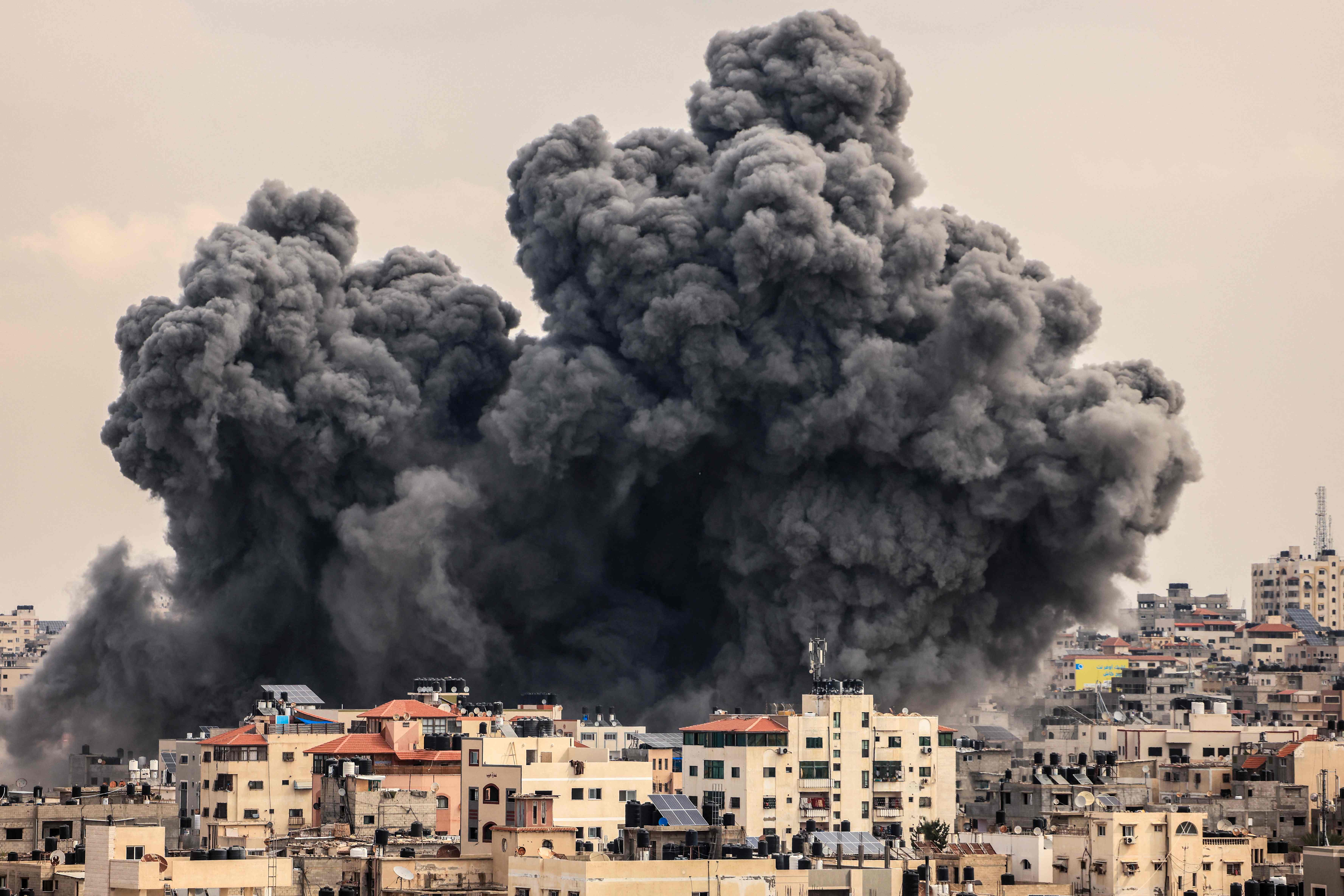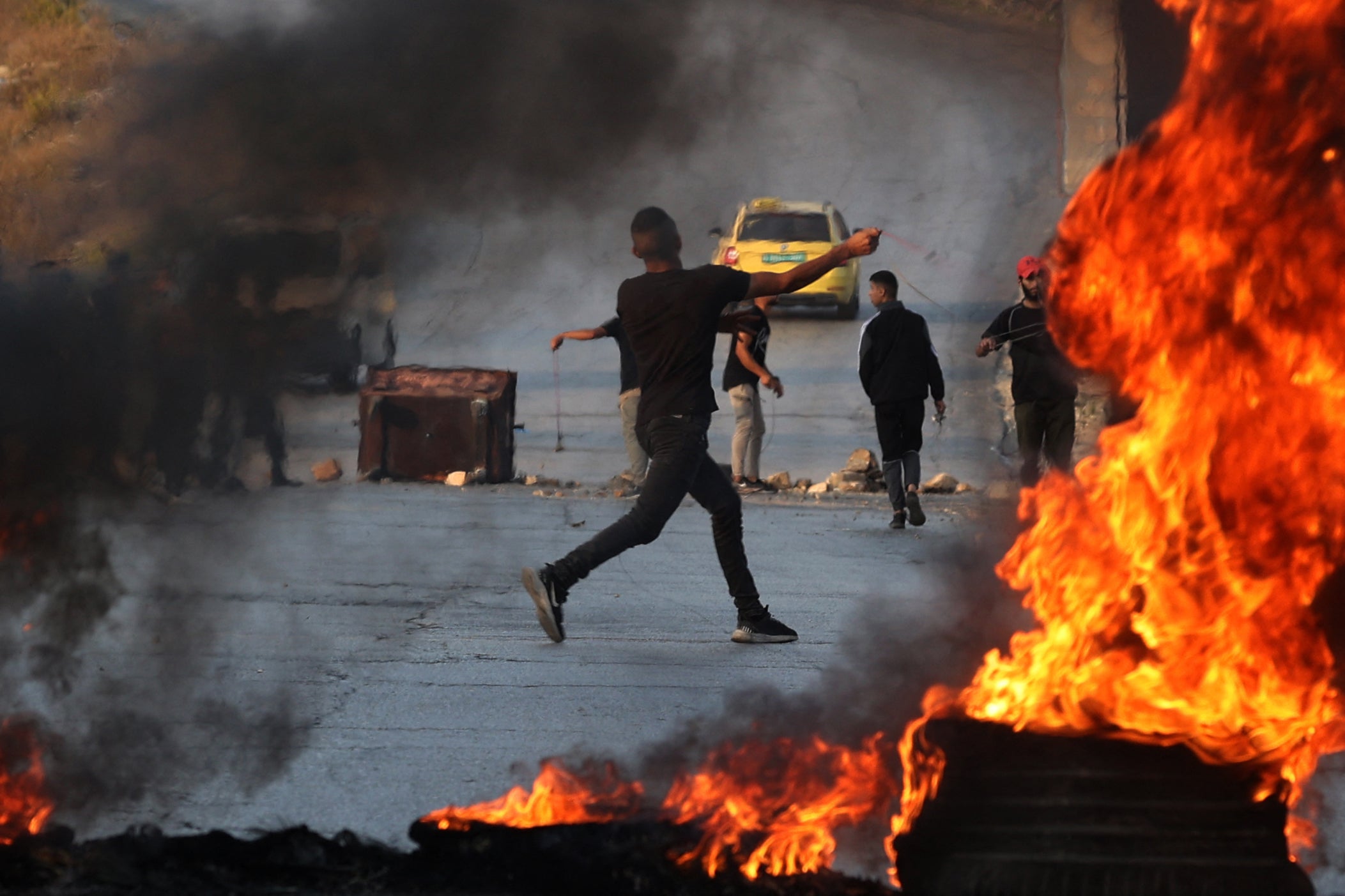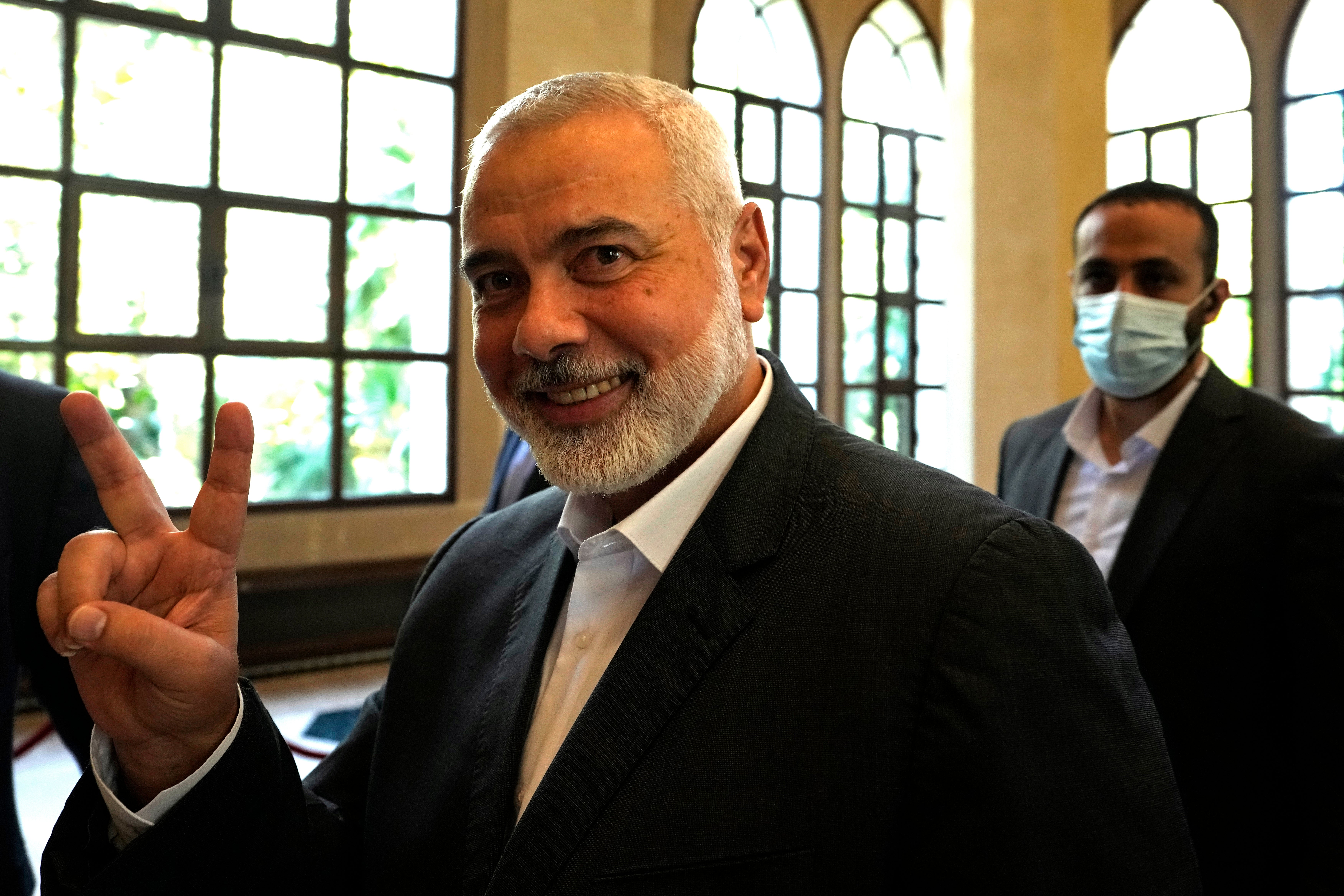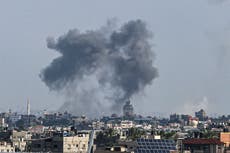What is Hamas, and why did it attack Israel? All you need to know about militant group in Gaza
Hamas was founded in 1987 and has controlled Gaza Strip since 2006
Your support helps us to tell the story
From reproductive rights to climate change to Big Tech, The Independent is on the ground when the story is developing. Whether it's investigating the financials of Elon Musk's pro-Trump PAC or producing our latest documentary, 'The A Word', which shines a light on the American women fighting for reproductive rights, we know how important it is to parse out the facts from the messaging.
At such a critical moment in US history, we need reporters on the ground. Your donation allows us to keep sending journalists to speak to both sides of the story.
The Independent is trusted by Americans across the entire political spectrum. And unlike many other quality news outlets, we choose not to lock Americans out of our reporting and analysis with paywalls. We believe quality journalism should be available to everyone, paid for by those who can afford it.
Your support makes all the difference.Palestinian group Hamas has launched its largest-ever attack on Israel, with militants launching thousands of rockets and storming through the Gaza border in an unprecedented assault.
In the deadliest assault Israel has suffered in generations, hundreds of soldiers and civilians living in settlements close to the border have been killed or abducted, after Hamas blew up observation posts and other fortifications and broke out of beseiged Gaza on motorbikes, speedboats and paragliders.
Two days after the shock incursion, Israel is still engaged in gunfights with Hamas fighters lodged within eight locations on its territory, with prime minister Benjamin Netanyahu vowing to root out every last militant and fire on all those hiding in Gaza – one of the world’s most densely-populated regions.
With Israel reporting at least 260 fatalities at a trance music festival in the Negev desert raided by Hamas militants armed with assault rifles and grenades, the group’s actions have been widely condemned internationally, with the United States sending military “assistance”.
Here, The Independent takes a brief look at the group’s history and aims:
What is Hamas?
The Hamas movement was founded in 1987 as an offshoot of the Muslim Brotherhood in Egypt, shortly after the first of the intifada uprisings by Palestinians against Israel.
An acronym for Islamic Resistance Movement, which also means “zeal” in Arabic, Hamas was created on the three pillars of religion, charity and the fight against Israel – also establishing a military wing, the Izz al-Din al-Qassam Brigades, named after the militant Syrian preacher first active in the 1920s.

Hamas has controlled the Gaza Strip since winning the most recent elections in 2006, held a year after Israel’s withdrawal from the enclave, since which time its borders and airspace have been strictly controlled by Israel and Egypt.
While much of Gaza’s young population was born under Hamas rule, some older Palestinians who voted them in – many in frustation with corruption in the rival Palestinian Liberation Organisation (PLO) – have expressed regret over years of fatal repression from Israel partly stoked by Hamas militance.
What are Hamas’s aims?
Unlike the PLO, which has been the internationally recognised Palestinian leadership since its acceptance of Israel’s right to exist peacefully in 1993 led to the Oslo Accords, Hamas does not recognise the state of Israel.
Instead, Hamas advocates for a Palestinian state stretching from the Mediterranean Sea to the Jordan River based on its historical borders.
However, since 2017, Hamas has said it accepts a Palestinian state shaped around the borders of 1967, which existed prior to the war in which Israel occupied East Jerusalem, the West Bank and Gaza Strip – after it was invaded in a surprise attack by Egypt and Syria, echoed nearly 50 years to the day later by Saturday’s incursion.

What has Hamas said about the new attack?
Mohammed Deif, the shadowy leader of Hamas’ military wing, has said the assault named “Operation Al-Aqsa Storm” was in response to the 16-year blockade of Gaza, the Israeli occupation, and a series of recent provocations – including at Al-Aqsa mosque – which have brought tensions to fever pitch.
“We’ve decided to say enough is enough,” said Mr Deif, announcing the launch of the attack on Saturday, adding: “This is the day of the greatest battle end the last occupation on earth.”
Ismail Haniyeh, the exiled political leader of Hamas, said on Saturday that the group was “engaged in these historic moments in a heroic operation” to defend the Al-Aqsa Mosque in Jerusalem and the thousands of Palestinian prisoners held by Israel.

He claimed the assault would spread to the West Bank and Jerusalem, adding: “This was the morning of defeat and humiliation upon our enemy, its soldiers and its settlers. What happened reveals the greatness of our preparation. What happened today reveals the weakness of the enemy.”
How is Hamas received internationally?
Hamas is considered a terrorist organisation by the United Kingdom, the European Union, Egypt, United States, Canada and Japan.
However it has long been provided with funding and weapons by Iran, and has the support of Lebanese militant group Hezbollah, which on Sunday exchanged rocket and artillery fire with Israel amid fears the conflict could spread.
Subscribe to Independent Premium to bookmark this article
Want to bookmark your favourite articles and stories to read or reference later? Start your Independent Premium subscription today.






Join our commenting forum
Join thought-provoking conversations, follow other Independent readers and see their replies
Comments